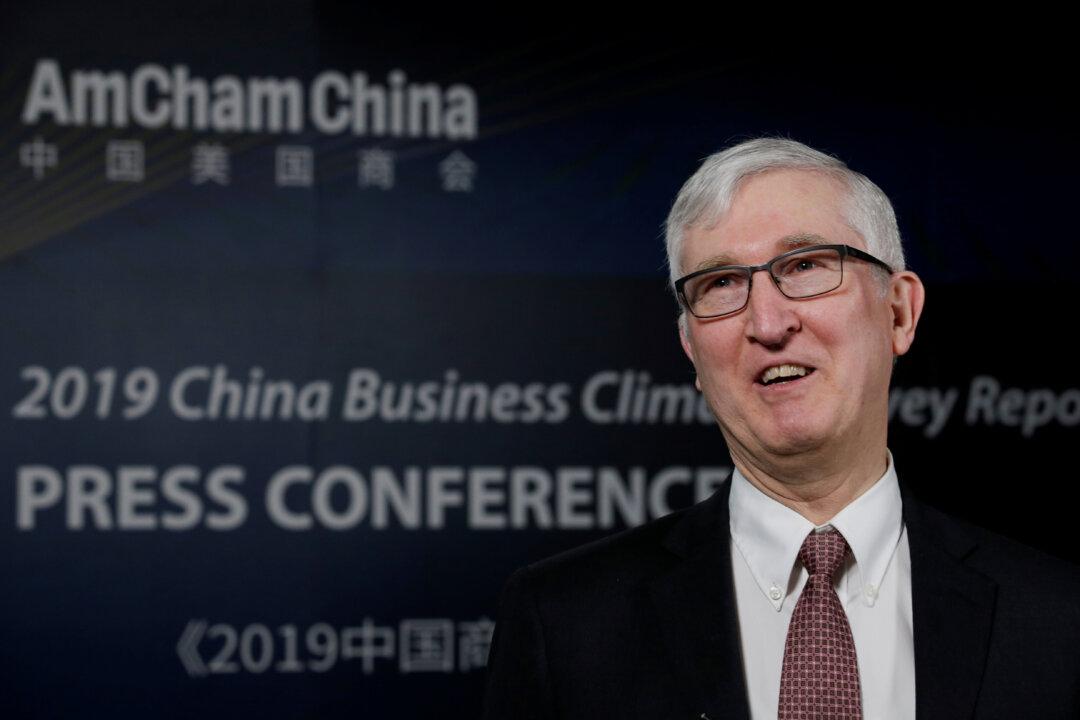BEIJING—A top U.S. business lobby in China said on Feb. 26 that a majority of its member companies favored the United States retaining tariffs on Chinese goods while Washington and Beijing try to hammer out a deal to end a months-long trade war.
The American Chamber of Commerce in China also said that over the past year substantially more of its members want the U.S. government to push Beijing harder to create a level playing field for U.S. businesses.





